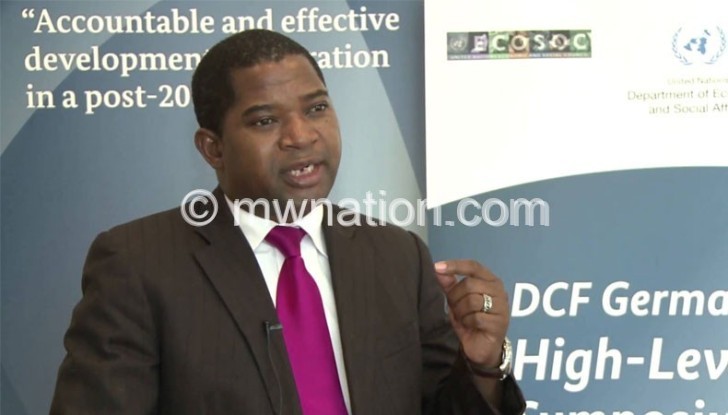Malawi yet to impress IMF on targets
Malawi will have to wait until next year to return to the International Monetary Fund (IMF) Extended Credit Facility (ECF) programme after the institution on Tuesday said uneven policy implementation, high inflation, and a weak balance of payments position, continue to pose macroeconomic challenges in the country.
IMF, whose programme with Malawi is currently off-track, indicated this in a statement released at the end of the 2015 Article Four Consultation with Malawi.
Under Article Four of the IMF’s Articles of Agreement, the IMF holds bilateral discussions with member countries such as Malawi.

In September, IMF reiterated that expenditure cuts were key for Malawi to complete the programme’s set targets for end-December 2015 to return to the economic programme.
On Tuesday, IMF expressed concern about the policy slippages that have prevented Malawi from achieving sustained growth and low inflation.
Read the statement in part: “Accordingly, directors emphasised that restoration of macroeconomic stability was a critical near-term priority. In this context, they underlined the need for fiscal consolidation and tighter monetary policy. Going forward, with implementation of sound macroeconomic policies and structural reforms, directors expected growth to rebound gradually over the medium term along with a decline in inflation.”
IMF underscored the benefits of improved revenue mobilisation to respond to rising demand for public services from a rapidly growing population and to reduce aid dependence.
In recent times, Malawi has been under-collecting revenue with data showing that between January and June government lost about K7.5 billion (about $11.9milion) in under collected revenue.
IMF has recommended broadening the tax base, strengthening tax compliance, and modernising tax administration.
“Directors emphasised that ensuring medium term fiscal sustainability while safeguarding social spending will require improvements in the allocation and targeting of public spending. Directors stressed the need to accelerate public financial management reforms to restore trust and confidence in the budget process and foster donor re engagement,” IMF said.
Currently, donors—who withdrew their 40 percent contribution to the recurrent budget in November 2013 amid concerns of Cashgate, the plunder of public funds at Capital Hill—have not yet unlocked their budget support to Malawi and have opted to finance the budget through off-budget support.
But presidential advisor on economic affairs Collins Magalasi in recent interview with The Nation admitted that the country is still facing hiccups surrounding the implementation of the ECF, but indicated that government is working ‘very hard to reverse the situation’.
The latest IMF brief assessment on Malawi comes on the back of another end-June 2015 review undertaken by the Fund in September which prompted IMF to declare the ECF off-track due to government’s failure to meet some key agreed program targets mostly on net domestic financing and on the Public Finance Management Reforms. n





